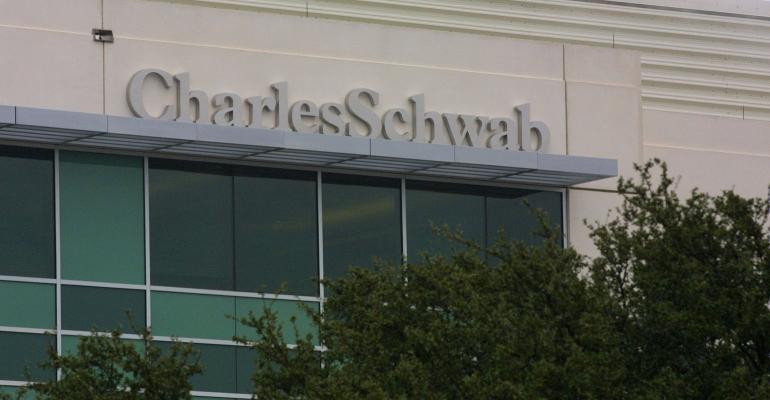NEW YORK, Oct 7 (Reuters) - Charles Schwab Corp on Friday said it was again cutting the fees on five of its exchange-traded funds, slicing expenses just days after a similar move by rival BlackRock Inc.
Two days earlier, BlackRock said it was reducing prices on 15 U.S. iShares ETFs by up to 0.05 percent.
San Francisco-based Schwab came later to ETFs than its rivals, but has grown its share of the market by offering funds at low cost and cutting fees competitively. Last November, for instance, Schwab announced a fee cut on a fund just hours after BlackRock made a similar move.
Schwab's latest moves bring fees down to as low as 0.04 percent per year, for its Schwab U.S. Aggregate Bond ETF , or $4 for every $10,000 managed.
That is lower than the 0.05 percent fee on iShares Core U.S. Aggregate Bond ETF, which BlackRock this week lowered from 0.08 percent. Both funds track a broad segment of the bond market.
Overall, the changes will bring annual fees down by 1 hundredth of 1 percent on Schwab ETFs with $18 billion in assets. Schwab manages $54 billion in U.S. ETF assets.
BlackRock's fee cut affected about 23 percent of iShares' $937 billion in U.S. assets.
Both price cuts come ahead of a new U.S. Labor Department rule governing retirement products takes effect. That rule, announced in April and effective next year, sets a so-called fiduciary standard for financial brokers who sell retirement products, requiring them to put clients' best interests ahead of their own bottom line.
The language in the new rule is tougher than an existing rule that only requires brokers to ensure products are "suitable." The requirements are widely seen pushing more money to lower cost investments.
Even before that rule, segments of the fast-growing ETF business had become viciously competitive on price, with fund lineups including Schwab's, Vanguard's and iShares' lower-cost "Core" funds all slicing fees closer to zero.
All three are thriving as investors have moved money from stocks - as well as fund managers who pick them - to index funds that hold the entire market.
Many, but not all, ETFs are low-cost index funds. In the United States, the funds have taken in $160 billion so far this year, according to FactSet Research Systems Inc. (Reporting by Trevor Hunnicutt; Editing by David Gregorio)






